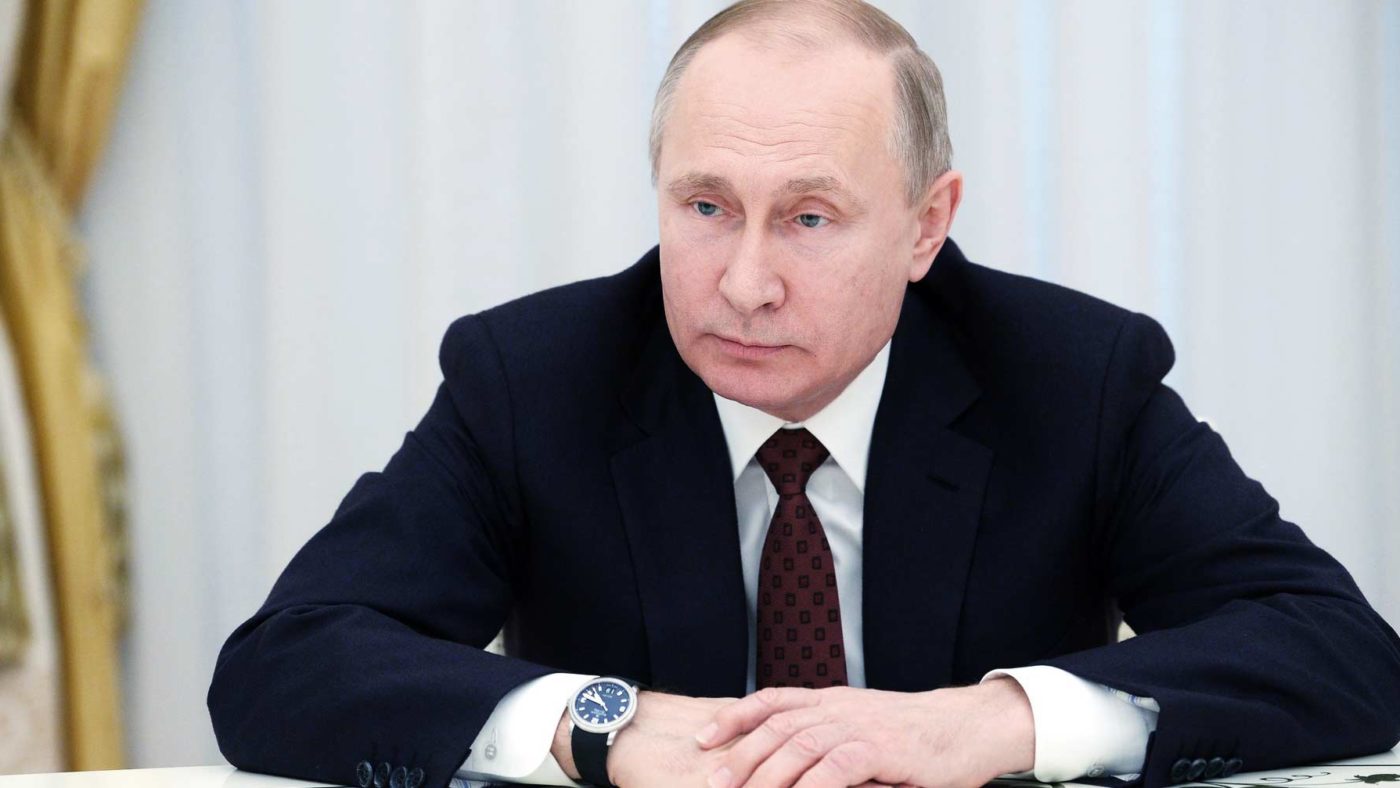You never know what’s going to happen yesterday – the old Soviet joke from Stalin’s time has been re-mastered for the modern era by Vladimir Putin. Leastways, four dark events in modern Russian history have been air-brushed out of existence from Moscow’s Russia – My History exhibition.
All four paint the Master of the Kremlin in a dim light; all four have vanished in the same way that Stalin’s fist, Nikolai Yezhov, the former head of the Russian secret police, vanished from a photograph of him standing next to the Vozhd after his disgrace. Putin’s Russia is not a totalitarian state as it was under Stalin, but some things stay the same and that includes mucking about with history.
A visitor to the modern display took photos of the display before and after the reworking of history and posted the missing elements on Facebook.. Gone were the loss of the Kursk submarine in 2000, the Nord Ost theatre siege two years later, the Beslan school massacre in 2004 and Russia’s war with Georgia in 2008.
The four rubbings out paint an all-too-accurate picture of the Chekist in the Kremlin: a thin-skinned, dissent-hating blur. Take that with Putin’s description of the collapse of the Soviet Union as “the greatest geopolitical catastrophe” of the 20th century and add his new school history book which barely mentions Stalin’s famine, under-reports the Great Terror and airbrushes Soviet appeasement for Nazi Germany from 1939 to 22 June 1941 and you get the full picture. Russia under Putin tells big lies about Soviet history and Chekist crimes, ancient and modern.
The sinking of the Kursk was the first moment when Putin got a lousy press. The families of the doomed submariners took to the (then relatively free) airwaves to have a go at the aloof President who was on holiday while the Russian Ministry of Defence turned away western offers of help. Under the heat of the TV’s lights, Putin appeared nasty and weak – never a good look for an authoritarian. The long-term consequence was that Putin used his oligarch-servants to switch off the media as an effective machine of scrutiny. Today the vast bulk of Russian media, press and TV, are lapdogs. They can bark occasionally but they can’t bite.
The Nord Ost theatre siege is a weird moment in Russia’s march from the crazy, drunken but free-wheeling years under Yeltsin to the creepy orthodoxy under Putin. Around 40 to 50 Chechens, armed to the teeth, took control of the Moscow theatre in 2002. How they managed to do that when Chechens of any kind get stopped and harassed at any time by the police is a mystery. Some suspect that this was a black operation by the Cheka, the old-KGB, new-FSB. That suggestion is hotly denied by the Kremlin. Russian Special Forces pumped in some kind of knock-out gas into the theatre so that terrorists and hostages would fall unconscious. But somebody blundered, the gas was far too deadly in a confined space and 130 in all were killed. To this day, no-one knows what the gas was or which official got his chemistry wrong – a pretty good short-hand explanation of how a police state works.
In Beslan, a horrible siege of school kids began. The late, great journalist Anna Politkovskaya was a known critic of Putin and a true friend of moderate Chechens. She hurried towards the siege to help negotiate a peaceful end and she was reportedly poisoned with tea served on her Aeroflot flight. She was far too ill to negotiate and had to return to hospital in Moscow. Special Forces went in, guns blazing. Most of the 330 people killed were children.
Russia’s short war with Georgia is the weirdest airbrushing because good evidence suggests that the Georgians started it with a foolish slap against the much, much bigger neighbour. Russia moved in to South Ossetia and have stayedWhy wipe that bit of history? A nervous Kremlin bureaucrat-jellyfish, perhaps, wanting to overdo it less he be seen to have missed something? Who knows.
But all of this is grim, grimmer than before. The old generation who knew the reality of life under Stalin is dying out. Witnesses to the forced famine of 1933 in which maybe seven million people, Russians and Ukrainians, died are now very old. So too are people who lived through Stalin’s terror. A whole new generation of Russian school kids have been fed Putin’s revised school history books which attack the West for appeasement but make scant mention of what George Orwell called “the midnight of the century”, the Nazi-Soviet Pact and how the Soviet Union fed and fuelled the Nazi war machine until it turned east in the summer of 1941.
The Soviet Union was extraordinary in its fight against Nazi Germany but it honours no-one and nothing to airbrush the mistakes it made, the millions it killed. Stalin and Putin are different men in different times but by their rewriting of history, some of their methods are scarily the same.


